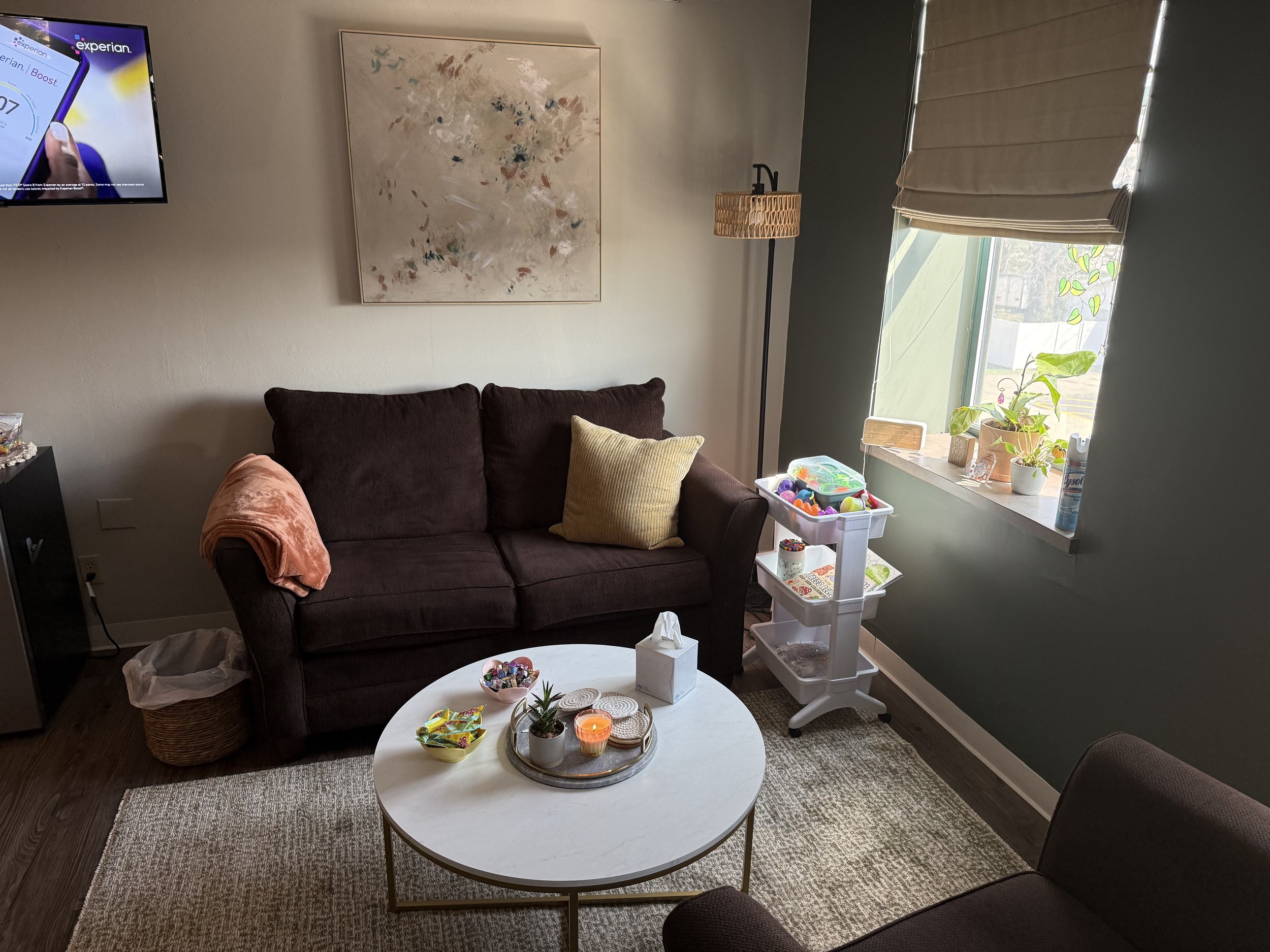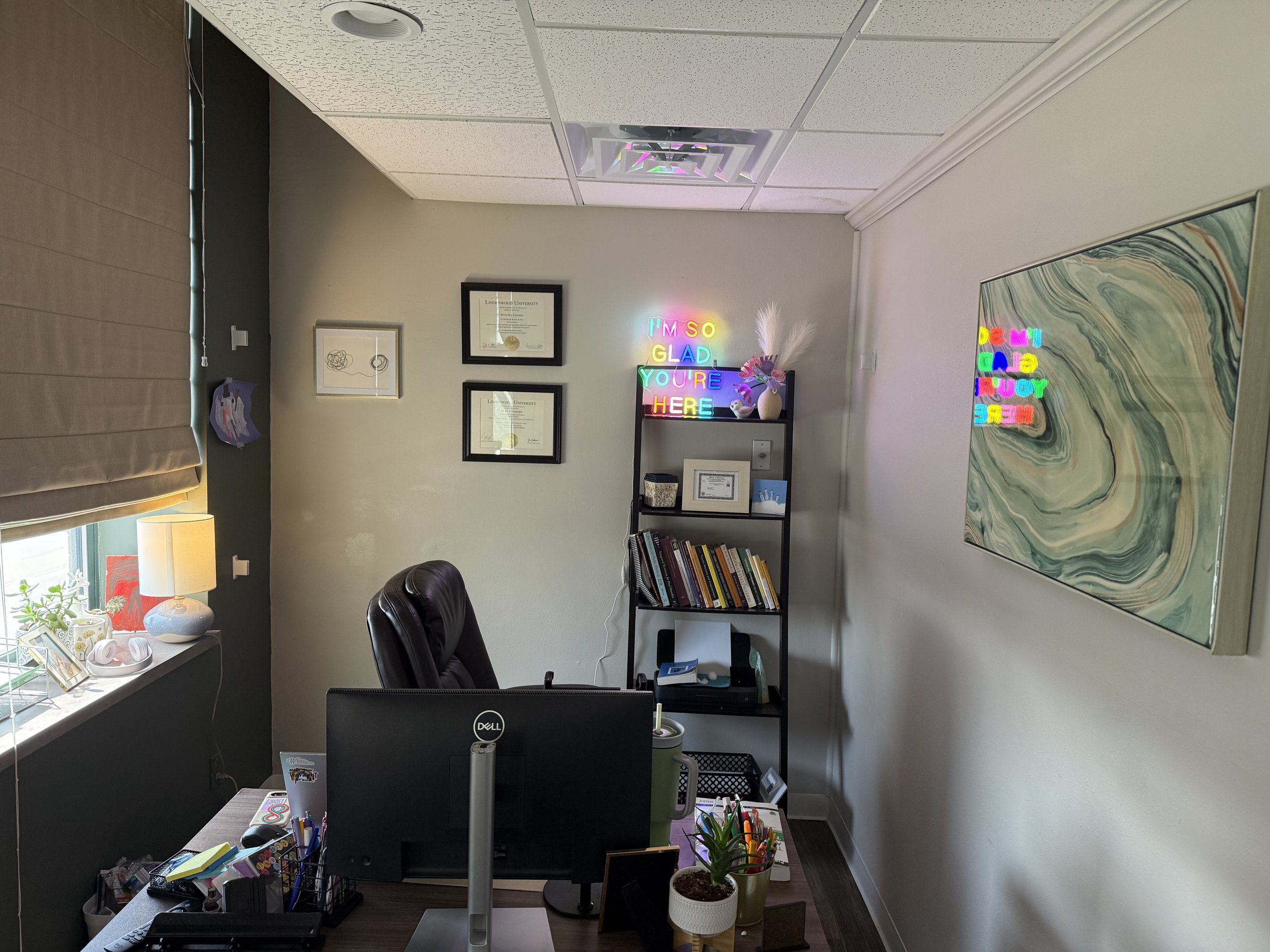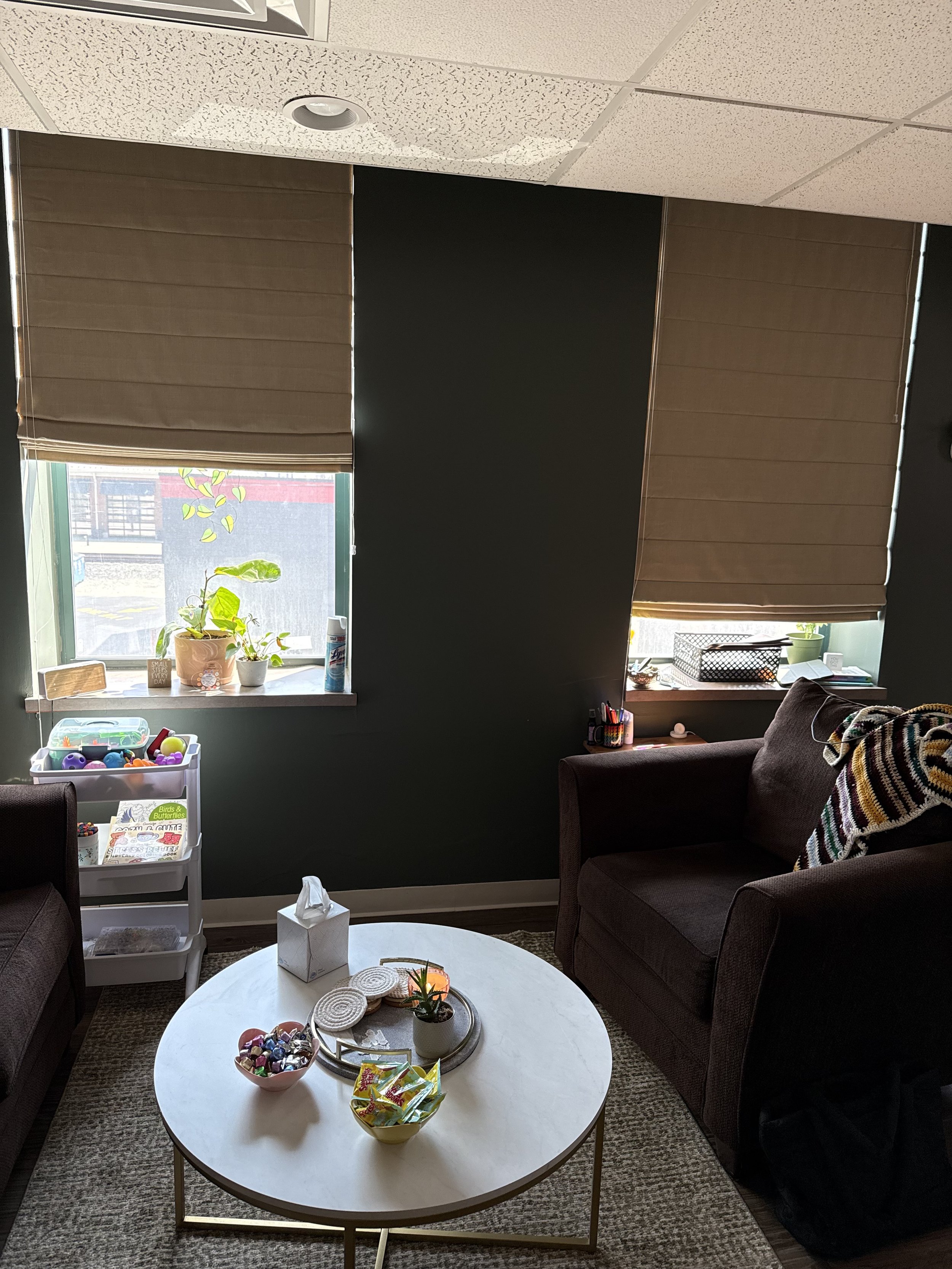Types of Therapy
Attachment & Strength Based
Attachment-based therapy applies to interventions or approaches based on attachment theory, which explains how the relationship a parent has with its child influences development. Strength-based therapy is a positive psychotherapy that focuses more on your internal strengths and resourcefulness, and less on weaknesses, failures, and shortcomings. This sets a positive mindset that helps build on your best qualities, find your strengths, improve resilience, and change worldview to one that’s more positive. A positive attitude, in turn, can help your expectations of yourself and others become more reasonable.
Positive Psychology & Compassion Focused
Positive psychology emphasizes traits, thinking patterns, behaviors, and experiences that are forward-thinking and can help improve the quality of your day-to-day life. These may include optimism, spirituality, hopefulness, happiness, creativity, perseverance, justice, and the practice of free will. It’s an exploration of one's strengths, rather than weaknesses. Compassion-Focused Therapy (CFT) may assist individuals who struggle with mood disorders, anxiety, or feelings of shame and self-criticism, often stemming from early experiences of abuse or neglect. Through exercises like role-playing, visualization, meditation, and activities that promote gratitude for everyday life, CFT teaches you about the mind-body connection and guides you in practicing awareness of your thoughts and bodily sensations. This helps you cultivate self-compassion and compassion for others, which can help regulate your emotions and foster a sense of safety, self-acceptance, and comfort.
Cognitive Behavioral Therapy (CBT)
Cognitive-behavioral therapy stresses the role of thinking in how we feel and what we do. It’s based on the belief that thoughts, rather than people or events, cause our negative feelings. The therapist assists you in identifying, testing the reality of, and correcting dysfunctional beliefs. The therapist then helps modify those thoughts and behaviors that flow from them. CBT is a structured collaboration between therapist and client and often calls for homework assignments. CBT has been clinically proven to help clients in a relatively short amount of time with a wide range of disorders, including depression and anxiety.
Motivational Interviewing & Solution Focused Therapy
Motivational Interviewing (MI) is a method of therapy that works to engage the motivation to change your behavior. Therapists attempt to influence their clients to consider making changes, rather than non-directively explore themselves. Motivational Interviewing is frequently used in cases of problem drinking or mild addictions. Solution-focused therapy focuses on what clients would like to achieve through therapy rather than on their troubles or mental health issues. The therapist will help the client envision a desirable future, and then map out the changes necessary for the client to realize their vision. The therapist will seize on any successes the client experiences, to encourage them to build on their strengths rather than dwell on their problems or limitations.
Specialties & Expertise
I see preteens, teens, and adults, individually or as a family, in person and via Telehealth. I specialize in counseling for anxiety, depression, trauma & PTSD, ADHD, behavioral issues, body positivity, family conflict, grief, impulse control disorders, life transitions, mood disorders, peer relationships, personality disorders, relationship issues, self esteem, stress, self harming, sexual abuse, suicidal ideation, thinking disorders, women’s issues.





